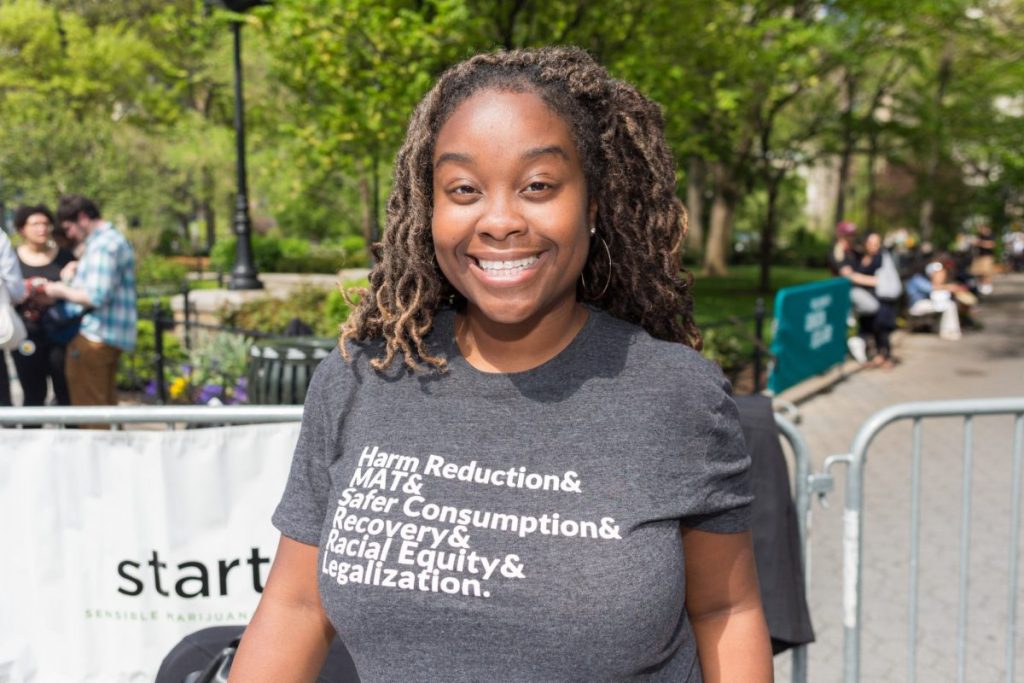NASHVILLE, TN – Lauren Johnson lives in Texas with her husband and her three children. After her husband lost his job in 2008, the family received less federal food aid because both parents had felony drug convictions and couldn’t get food stamps (SNAP).
“There’s no end to the collateral consequences of a criminal conviction,” Johnson said. “Here in Texas, 55,207 total individuals in the fiscal year 2014 were disqualified for federal drug convictions for SNAP, Supplemental Nutrition Assistance Program. That doesn’t include all of the individuals that didn’t even apply because this had been the law for so long that all your friends had told you, you don’t qualify. And a lot of people just didn’t even bother trying,” she said.
Every year since 1996, following the passage of Clinton’s infamous crime and welfare bills, there has been a Texas bill to opt out of the federal law. It never passed until Johnson, who works for the ACLU, started working to overturn the punitive law. “In 2015, we changed that law. Many, many people who have now come home from prison or used to be disqualified, that are now accessing the food stamp assistance,” she said.
Although that particular law was changed in Texas, the effects of the War On Drugs still impact millions and “goes far beyond the criminal legal system in its heinous impacts”, according to the Drug Policy Alliance (DPA).
The DPA said the drug war is “insidiously waged inside public policies across the board” and has contaminated six critical areas: child welfare, education, employment, housing, immigration, and public benefits. It’s time to end it.
“Only through creating awareness of the drug war’s insidious impacts across sectors can we begin to disentangle it and the culture of criminalization it promulgates from our lives,” said Kassandra Frederique, DPA executive director.
As we reported last week, despite decades of failure, prohibition and punitiveness generally remain the centerpiece of governments’ approach to drug use. (see Two Countries)
In the hysterical language of the War on Drugs, marijuana was often called “a gateway” drug. That is hyperbole but it is absolutely true that conviction for marijuana possession can ruin your whole life. The consequences can be severe and devastating because of the culture of punishment for drug use that has nothing to do with matters of personal and public health.
According to the DPA, the war on drugs has fueled mass incarceration and has also produced profound employment discrimination. The very presence of a drug arrest or charge can keep you from getting a job and can be an automatically keep you from getting a professional license for a trade like trucking, barbering, or nursing.

The drug war against kids started in 1973 with the passage of the Child Abuse Prevention and Treatment Act (CAPTA). Since that time, real and perceived drug use has been used as an excuse to remove children, primarily children of color, from their homes and communities.
The DPA website provides details of a system featuring “relentless attacks on parents” by lawmakers and pundits; “constant surveillance” and increased child maltreatment investigations; and forced participation in abstinence-based drug treatment programs, even for parents who don’t have substance use disorders.
Regarding education, drug use has been used as an excuse to search lockers, drug-testing, harsh discipline–all of which leads to higher dropout rates and limits on assistance to higher education. The DPA education report notes that that Black, Indigenous, and Latinx students “receive the highest percentages of federal financial aid and are also targeted by drug war enforcement at higher rates.”
While there is little evidence that drug testing improves job performance, mandatory testing and discrimination have robbed people from access to stable employment.
In housing, the Anti-Drug Abuse Act of 1988 had a section on “Preventing Drug Abuse in Public Housing”. It has been used for decades to disqualify or evict poor families from public housing. According to the DPA, the Drug war is a war on families because it puts people “in the impossible position of choosing between giving up housing or turning their backs on family members who would make the entire family ineligible for assistance by using (or even being suspected of using) drugs.”
Drug hysteria has been tied to immigration since the Chinese Exclusion Act of 1875.

Asians and Latinos are generally not drug addicts but have been treated as if they all are. “Drug war thinking has led us to “surveilling immigrants, turning anything related to drugs into a severe crime, deporting people in record numbers, and enacting harsher punishments on noncitizens,” the DPA report says.
Furthermore, the War on Drugs brands “all people who use drugs and people suspected of using drugs as lazy, irresponsible, and not deserving of any public assistance.” The report said that people of color are disproportionately targeted with racist names like “drug-addicted welfare queens”.
The DPA report notes “over 25% of states require welfare applicants to submit to the invasive and humiliating procedure of peeing in a cup to be drug tested” and “over half of states have instituted modified bans to limit welfare and food stamp eligibility for people with felony drug convictions.”



